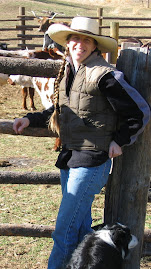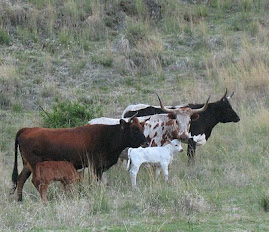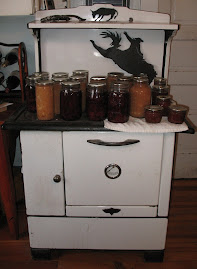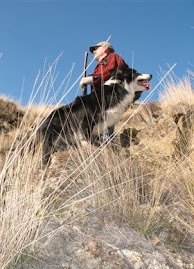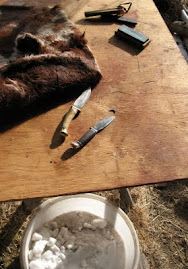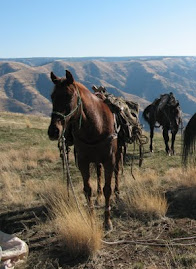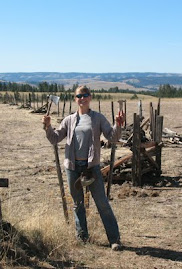Six thousand miles. That's about how far Ene and Azja travelled to get to the Magpie Ranch. Nearly a quarter of the way around the planet, from Ulaanbaatar, Mongolia to Horse Creek on the Imnaha River.
We are very fortunate to have friends like these who teach us, question us and laugh with us. Yes, we learn about their country and lives, but we also get the rare opportunity to see our own work and culture through their young eyes.
Mike and Azja worked together the last time Mike was in Mongolia, and Mike wrote a letter of recommendation for Azja to get into graduate school in San Francisco, where he is working on a Masters in Developmental Economics. In Mongolia, they live in the capital city, (as Ene says,"I am not a countryside girl."), but like other urban Mongolians, they are only one generation removed from centuries of life as herdsmen on the Mongolian steppe.
Ene spent much of her childhood living a rural lifestyle with her grandparents while her mother studied to become a pediatrician. Milk and meat are the sustenance of Mongolian people. Thus Ene was prepared to inform me that camels give 15 liters of milk and are milked three times a day. At the ranch she kept saying,"You get milk from your cows, right?" "No, I said, "They are beef cows, we raise them for meat."
When we were hiking the bench trail on our way to fix fence, I pointed out one of my favorite Longhorns lying down, relaxing in the spring sunshine. Ene asked why that cow was special to me and I explained that she is calm, travels well, and raises a nice calf every year. Ene asked when the cow would have a calf and I said in a month. "Then you will milk her, right?" she asked.
The fact that we own cattle and buy milk from the store struck her as somewhat ridiculous. At least I was able to reassure her that some of our friends with cattle do have milk cows and that sometimes we buy milk from them.
Ene and Azja are part of a generation faced with the enormous responsibility of carrying their homeland forward in the transition from a command economy under Soviet communist influence to a capitalist economy under a struggling parliamentary government. There are roughly 3 million people and 40 million head of livestock in Mongolia. This year, more than 4 million of those animals are dead, with more expected to die as a result of the dzud, severe winter weather with extreme cold and high winds.
Rich in minerals and land, Mongolia is under pressure from international mining companies and land-starved nations. Migration to the cities from rural areas continues. Corruption in government is common. In the midst of economic turmoil and cultural change, family ties are still of utmost importance.
When summer break comes, Azja will leave San Francisco and return to Mongolia for two months. His mother said she needs him. I think he might not want to go, but he doesn't consider the possibility of saying no, not even for an instant. "Family is the most important thing," he says. "In Mongolia,we always help each other. Always."
From Sara at Magpie Ranch, home of Bunchgrass Beef
Sunday, March 21, 2010
Subscribe to:
Posts (Atom)

